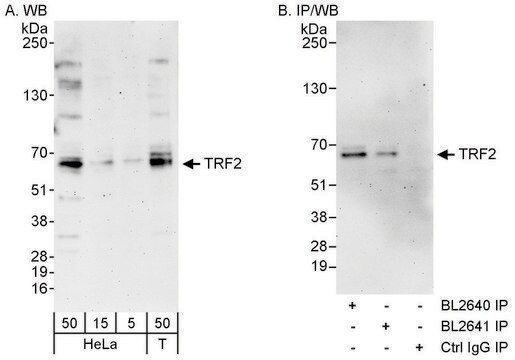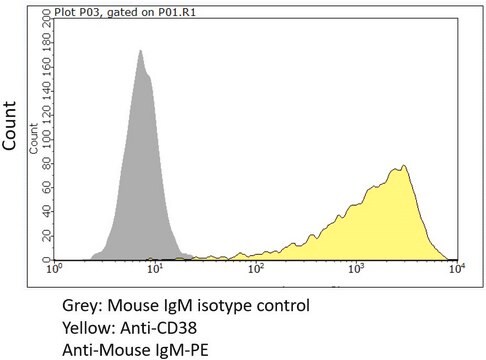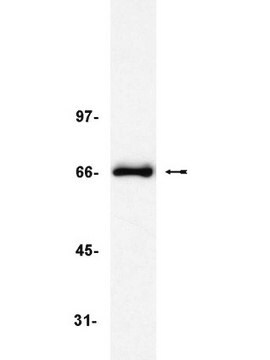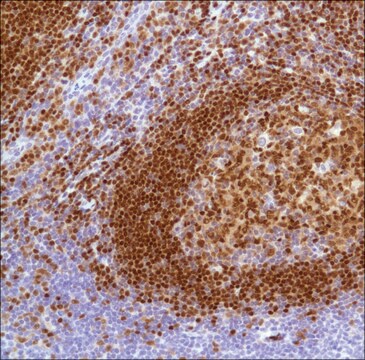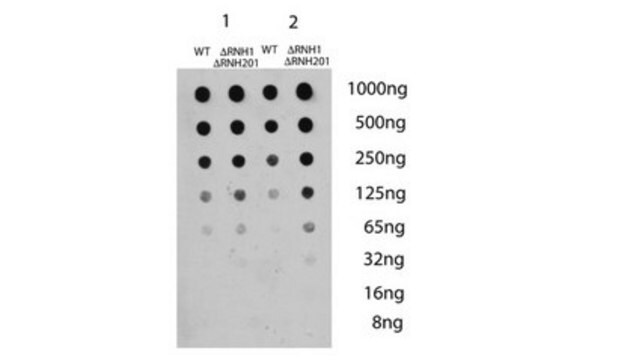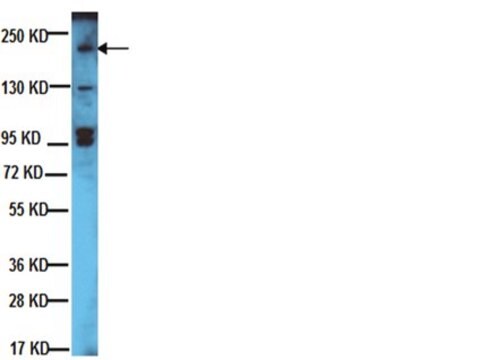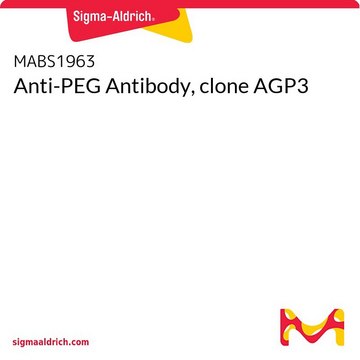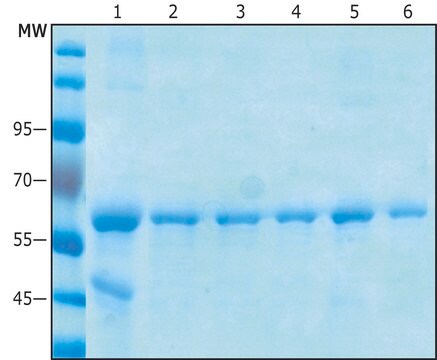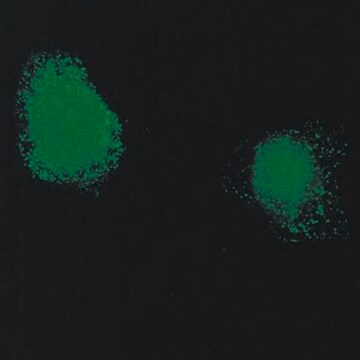MABE1135
Anti-TRF2 Antibody, clone T2JKM3
clone T2JKM3, from mouse
Synonyme(s) :
Telomeric repeat-binding factor 2, TTAGGG repeat-binding factor 2, Telomeric DNA-binding protein, TERF2
About This Item
WB
western blot: suitable
Produits recommandés
Source biologique
mouse
Forme d'anticorps
purified immunoglobulin
Type de produit anticorps
primary antibodies
Clone
T2JKM3, monoclonal
Espèces réactives
human
Conditionnement
antibody small pack of 25 μg
Technique(s)
immunocytochemistry: suitable
western blot: suitable
Isotype
IgG1κ
Numéro d'accès NCBI
Numéro d'accès UniProt
Modification post-traductionnelle de la cible
unmodified
Informations sur le gène
human ... TERF2(7014)
Description générale
Spécificité
Immunogène
Application
Western Blotting Analysis: A 1:200 dilution from a representative lot detected TRF2 in HT1080 cell lysate.
Epigenetics & Nuclear Function
Qualité
Western Blotting Analysis: 1 µg/mL of this antibody detected TRF2 in HT1080 cell lysate.
Description de la cible
Forme physique
Stockage et stabilité
Autres remarques
Clause de non-responsabilité
Vous ne trouvez pas le bon produit ?
Essayez notre Outil de sélection de produits.
Certificats d'analyse (COA)
Recherchez un Certificats d'analyse (COA) en saisissant le numéro de lot du produit. Les numéros de lot figurent sur l'étiquette du produit après les mots "Lot" ou "Batch".
Déjà en possession de ce produit ?
Retrouvez la documentation relative aux produits que vous avez récemment achetés dans la Bibliothèque de documents.
Notre équipe de scientifiques dispose d'une expérience dans tous les secteurs de la recherche, notamment en sciences de la vie, science des matériaux, synthèse chimique, chromatographie, analyse et dans de nombreux autres domaines..
Contacter notre Service technique